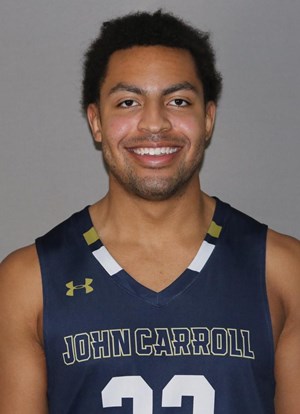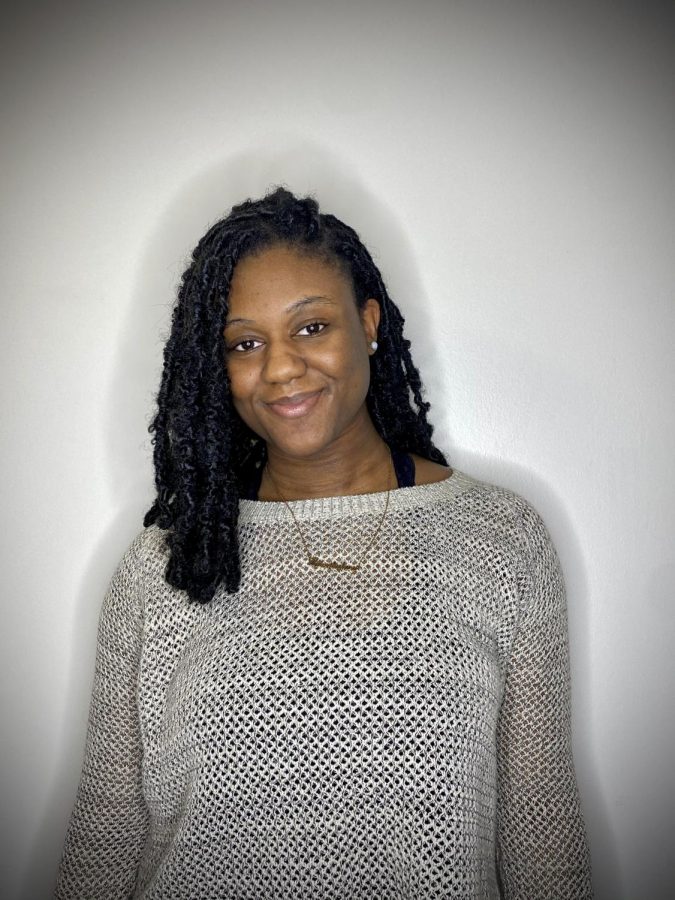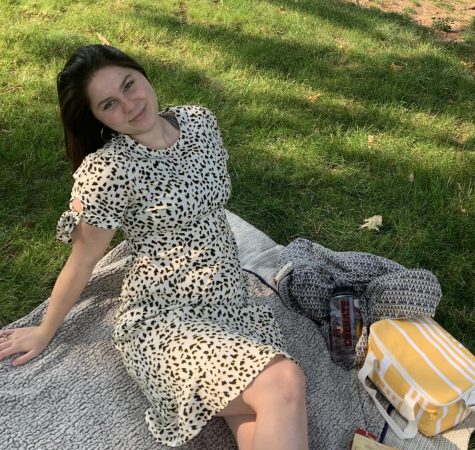Q&A with Black Students in Action
President Uchechukwu Ike ’22 and member Hugh Brown ‘23 tell The Carroll News what the organization means to them.
Feb 26, 2021
Black Students in Action is one of the many cultural institutions at John Carroll University providing safe spaces for students of all backgrounds. During this time of mass uncertainty and social change, there are many obstacles when leading a college organization, especially one with such an impact on the community. As Black History Month comes to a close, President Uchechukwu Ike ’22 and member Hugh Brown ’23 told The Carroll News how the organization educates students on important social issues while also creating an open and welcoming environment for all.
Uchechukwu Ike ’22
Can you tell us about your organization?
BSA stands for Black Students in Action, and we are basically an organization representing people of color, especially African American students, and our allies just as a space for them to either connect with other African American students on campus or find different ways to be supported as a person of color here.
What do you think are some important elements about BSA?
I’m just using this as my word, everybody else has a different word for it, but I feel like BSA is a safe haven for African American students to meet other people because that’s not a very accessible thing, pre-COVID or during COVID. It’s a place where their identity is supported. It feels like a family almost because you have people that relate to you — not just in terms of race but also in terms of experiences, in terms of backgrounds, or if you live in the same place or if you don’t live in the same place. It’s also a space for people to connect, not just with each other but finding opportunities outside of Carroll, finding ways to be involved in the community or on campus. So, I think I’d say a very big important element is being able to feel like a family, a family that’s supported by other people from different places, no matter where.
How has the current social climate, as influenced by the death of George Floyd and worldwide Black Lives Matter protests, impacted the organization and John Carroll?
In terms of John Carroll, I will be honest, I am yet to see what will happen or how other people think, especially towards those certain events that have happened in 2020. I know for us as BSA, we are trying to see if we can focus more on being able to educate others and have them be aware of the situations that are occurring, not just even the major ones with George Floyd but also just what happens to students here on campus. People may not talk about it, but there are instances where, not even just Black students but people of color, feel uncomfortable in situations where someone approaches them the wrong way, says something out of context, experiences a microaggression, discrimination or whatever it might be. So, I feel like we, as an organization, are trying our best to find different ways to have people be aware and find out what John Carroll thinks about it as well, not just administration and everything, but students as well because that’s what really hits us the most.
Is the organization working on anything right now?
Currently, we are thinking of ways to become more involved in the community. I know tomorrow at our meeting that’s going to be our main topic, as well as general ideas of what we can do on campus to have Black students feel more comfortable being here. We are also educating non-Black students of the news that’s happening, anything that has to do with Black history and more.
What are some things that you think needs to be changed at John Carroll as a primarily white institution?
I know from an entrepreneurship class that I’m taking, we had a discussion about if there were some ways that we could change or tweak around or whatever would it be at John Carroll. Me and another classmate were talking about how the diversity here is not as prevalent as we thought it would be. Take for example when you see social media or the marketing of John Carroll. You may see a couple people of color featured there, whether they’re Black or Asian or Hispanic or of another background. But then you come here on campus, and you rarely see that. So, I don’t know if it’s a thing that we as students can work with or change, but I feel like it also comes down to administration and the process of accepting students here at Carroll — being aware that they are reaching out to people of color, not just even here or outside of Ohio but also within Ohio. I know there are probably high school kids that are considering here, but they understand it’s a predominantly white institution. But there are so many sources that they might not know about it just yet. It really comes down to the population and what the university is willing to accept or how many people the university is willing to accept.
Do you want to say anything to the John Carroll Community?
The first one that comes to mind is just to be open minded. First off, it’s not easy to be a college kid in general, like we’ve all been there, we’re all doing this. But to be a person of color, whether you’re Black or Hispanic or Asian or whatever it might be, it’s almost like a double job at the same time. I know for me, in terms of my experience of being here, I know what it’s like to be at a predominantly white institution. I’ve been there through high school. But I’d be lying if I say it still wasn’t very intimidating, or very uncomfortable, even classroom settings or in social settings, just to be a Black woman. It’s like, “Can I relate to you or can I not relate to you? How do you view me?” So, I think it’s just a thing of being open minded. We also need to be able to have those difficult conversations. Like I said, it [discrimination] may not be up in your face … but to know that these individuals have it either on a daily basis or see it every other day. So, I think it’s just about being able to speak up, have those conversations, educate yourself and be open-minded.
Hugh Brown ‘23
Why did you join BSA?
Probably one of the main reasons I joined is just the close-knit community that was created. When I came and shadowed, I met a bunch of guys and the girls in the club, and they were just very welcoming. I think that was honestly the biggest thing for me. And then just a lot of the community aspect that they incorporated within the club. The off-campus stuff they do and the frequent meetings that they have intrigued me as well. So it’s like a family, honestly.

What are some events you went to or projects you worked on with the organization?
It’s been tough since COVID, but we’ve had a lot of game nights and other events just to get everyone acquainted with what our club is trying to do and with the community. We’ve even been planning some Black History stuff. We’re just trying to find ways to stay relevant and to stay within the community. The most recent event I went to was a game that we held for the people who have been a part of the club for a while but also the freshmen as well. I attended via Zoom, so it was a little different for me not being there, but I was still there.
What would you say to someone who is thinking about joining?
I would say it can’t hurt [to join] because, and I’ve alluded to it a bunch, of the family feel. Just being able to see people on campus that you know you can go to for whatever advice or support you need. That’s always good to have. Just knowing you have this community helps with knowing the different events that go on campus that you might not have known about with another friend group. It’s just important to stay connected.
Editor’s Note: Interview has been edited and condensed.













